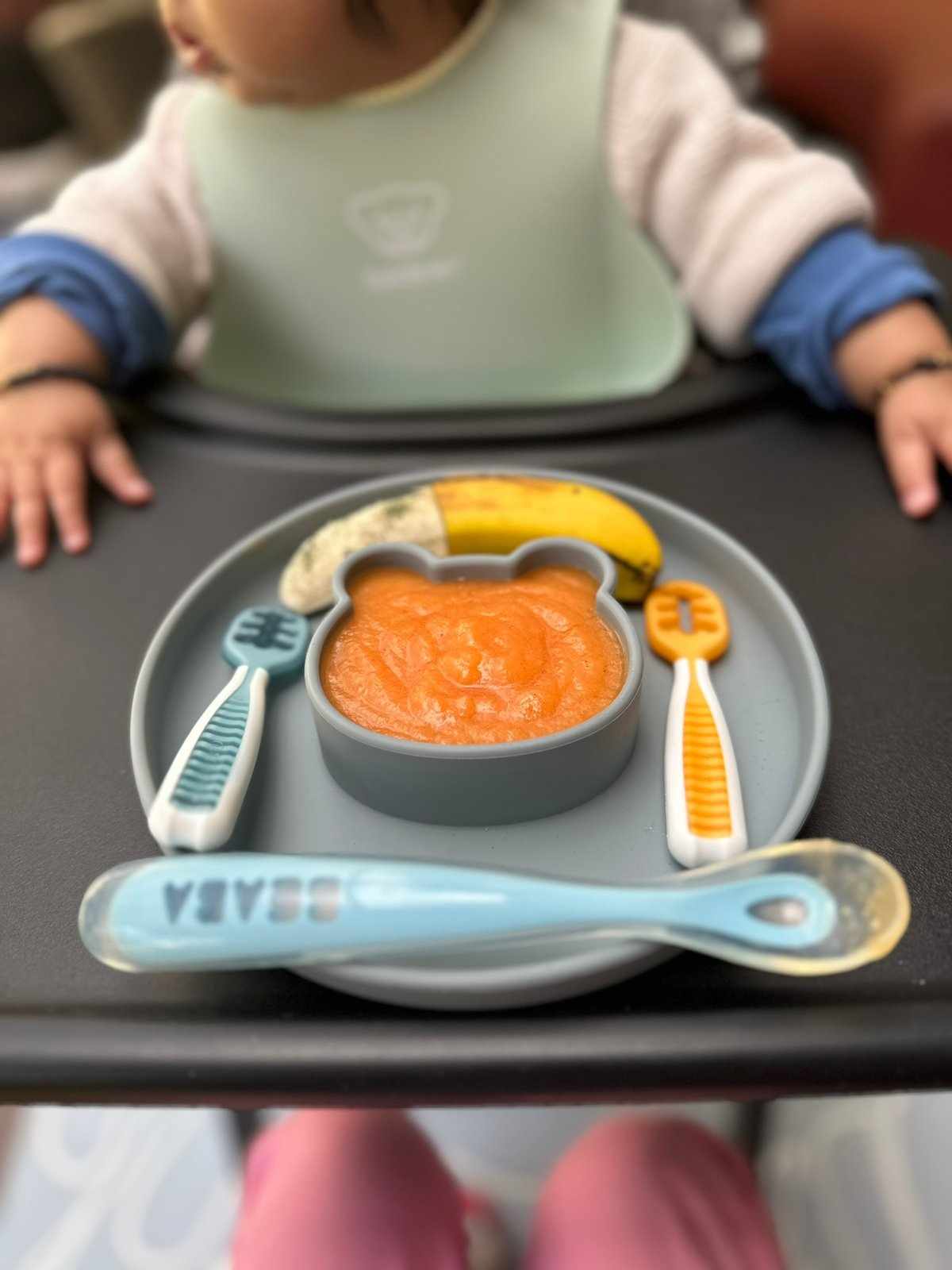Presenting solid foods to your infant marks a major turning point. Parentally, you might be excited and anxious about how you introduce solids to your child. This is a crucial stage in their growth since it guides them from milk to a more varied diet. This guide will help you start, particularly concerning solid food for a 6 month baby, and walk you through the process.
When Should Your Baby Start Solids?
Paediatricians and health organizations advise that the most often occurring age to begin solids is about six months. Babies are usually ready to investigate solid foods at this age alongside formula or breast-feeding. For you and your child, this represents an interesting period!
Not all newborns are ready for solids at the same time, though. While some may take a little longer, others may show indicators of preparedness early. Look for signs including your infant exhibiting interest in your food, being able to sit up with assistance, or head and neck movement control abilities. When deciding how to introduce solids for your baby, these indicators might inspire confidence.

The First Foods Perfect for a Six-Month Baby
Though it can sound daunting, selecting the correct foods for your baby's first bite depends mostly on simplicity. Start with soft, easily digested single-ingredient foods unlikely to trigger allergies. Typical first foods are mashed bananas, avocado, and pureed veggies including sweet potatoes and carrots.
One new food at a time lets you find any possible allergies or sensitivities. You can add another food after several days of observing for reactions. Keep the servings modest; starting with solid food for a six-month-old baby, just a few spoonfuls are plenty.
Perfect Food for Six-Month Baby: A Methodical Approach
The basis of your baby's diet is their first foods. Although during the first year breast milk or formula is still the major source of nutrients, solid food for 6 month baby adds diversity and promotes the growth of good eating habits. As iron stores in newborns start to run low around six months, think about including iron-rich foods such as pureed meats or iron-fortified cereals.
Do not hurry through the weaning process. Increase the variety and amount of foods gradually; always pay close attention to the signals your baby provides. Every infant is unique, hence some may require more time to become used to solid foods. Though let your infant eat at their speed, offer a range of fruits, veggies, and meats.

Sanchita Daswani's Part in Supporting Parents
Sanchita Daswani recognizes the need to help parents cross this important turning point. Parents can boldly negotiate how to start solids for babies with her knowledge and help, therefore guaranteeing a smooth and stress-free experience. Her materials, including the Solids Made Simple Course, offer methodical direction catered to your baby's particular needs.
Conclusion
Starting solid food is a trip that lets your infant investigate novel flavours and sensations. Although it could seem difficult, it can be fun if one uses a methodical and careful approach. Start with safe, basic foods and progressively increase the range of things your baby eats as she develops. Keep mealtimes laid back, follow your infant's lead, and most importantly, treasure these priceless events.
The basis for a lifetime of good eating is set by concentrating on the correct solid food for a 6 month baby and trusting your instincts as a parent. Here to help you at every stage, Sanchita Daswani guarantees that your baby's initial introduction is both safe and fun.








Write a comment ...